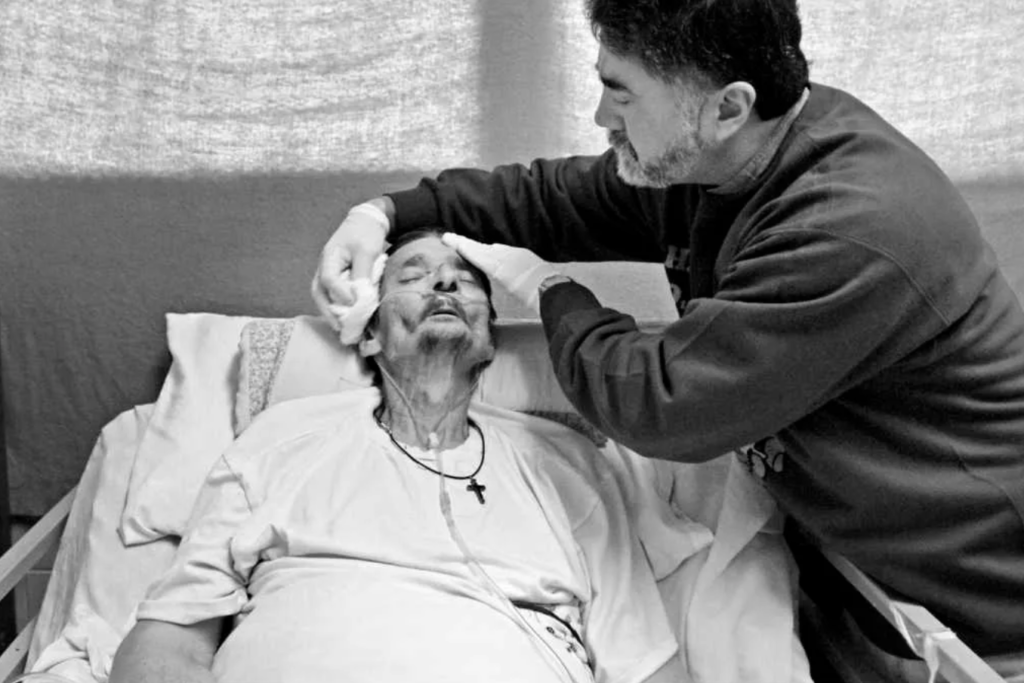
It’s graduation season. Western Theological Seminary students graduated yesterday. Hope College main campus students graduate next Sunday. There will be eight graduations in Michigan prisons over the next month, celebrating the degree attainment of incarcerated college students from four colleges associated with the Michigan Consortium for Higher Education in Prison. The most advanced students in the Hope-Western Prison Education Program are one year away from their graduation, but one can already sense their eagerness for the “Big Day.”
In the days, weeks, and months leading up to their graduation from college, students are bombarded ad nauseam by loving, supportive friends and relatives with the age-old question: What do you want to do when you after graduation? Most students — even those who, despite their fondest hopes, have no plans whatsoever — will confidently assert a seemingly plausible plan to find work in this field or that, or to pursue graduate education, perhaps after a year of still-to-be-determined employment.

This isn’t the first time our beloved graduates have been asked this question, though the form of the question is different. Way back in kindergarten or first grade most of us had the question posed to us in this way: What do you want to BE when you grow up?
A fireman. A doctor. A teacher. A baseball player.
And thus begins a lifelong vocational confusion between what it means to DO as opposed to what it means to BE. This confusion often reaches its apogee in college.
Students often go to college with DOING in mind. Doing is good and necessary. Doing puts food on the table. Doing puts roofs over heads. And those whose worldview promotes an understanding of humans as homo economicus notwithstanding, doing can align us with a God-whispered vocational call for our lives. Nothing wrong with doing.
Incarcerated people engaged in college education think about doing in similar ways as their non-incarcerated peers on the main campus. They want to DO things with their lives, and their college education informs their imagination for this doing. They want to give back to their communities through non-profit leadership, entrepreneurial engagement, and a host of other shared aspirations we non-incarcerated folks enjoy. Doing is challenging for formerly incarcerated people, but that doesn’t dull their imaginations or aspirations.

Even incarcerated college students serving long, indeterminate, or life sentences are concerned with doing following their graduation. The prison system is chockablock with needs for which incarcerated college graduates can serve, and serve well. They can serve in academic support roles. Perhaps — one day — having incarcerated college professors will be common. Incarcerated college graduates can provide critically needed human service roles, including peer mentoring, addiction recovery support, and hospice care. “Even in a place like prison, you can find purpose,” asserts HWPEP student Anthony Robinson.

As good as doing is, we shouldn’t confuse it with something more important: Being. And as much as a college education can contribute to our ability to do, we shouldn’t confuse it with a college education’s main purpose, which is to help us be different people than if we hadn’t gone to college. This is true for average folks like you and me. And its manifestly true for incarcerated college students. Their college education is helping them to be different.
It’s providing them with schooled hearts.
“Even in a place like prison, you can find purpose.”
HWPEP student Anthony Robinson
Students — incarcerated or free — are not merely thinking things. They are — we are — instead, what they love. David Lyle Jeffrey’s notion of “the schooled heart” offers us a scaffold around which to build a college-in-prison program that emphasizes this kind of formation. The schooled heart is in a constant and ever-broadening search for wisdom. This conception of wisdom provides incarcerated students with a North Star toward which they can navigate as their intellect wrestles with competing ideas, formulations, and claims for what constitutes Truth. Wisdom as embodied (incarnated) in Christ provides an exemplar for a student’s moral education -— for his formation. And for moral education to be effective, Jeffrey reminds us, the teacher must be a touchstone — an exemplar.
It takes much more than a properly ordered curriculum to develop the schooled heart. Jeffrey asserts that the schooled heart cannot be developed alone. Its formation requires a community — a college (in the oldest meaning of the term) — in the same sense that the apostles served as a college with Christ as the professor.
The schooled heart resides in the chest of someone who has become something different.
Why is college-in-prison good? Because it helps incarcerated people be different. And as good as doing is, the schooled heart of someone whose college education has formed him to be different is even better — and far more important.


